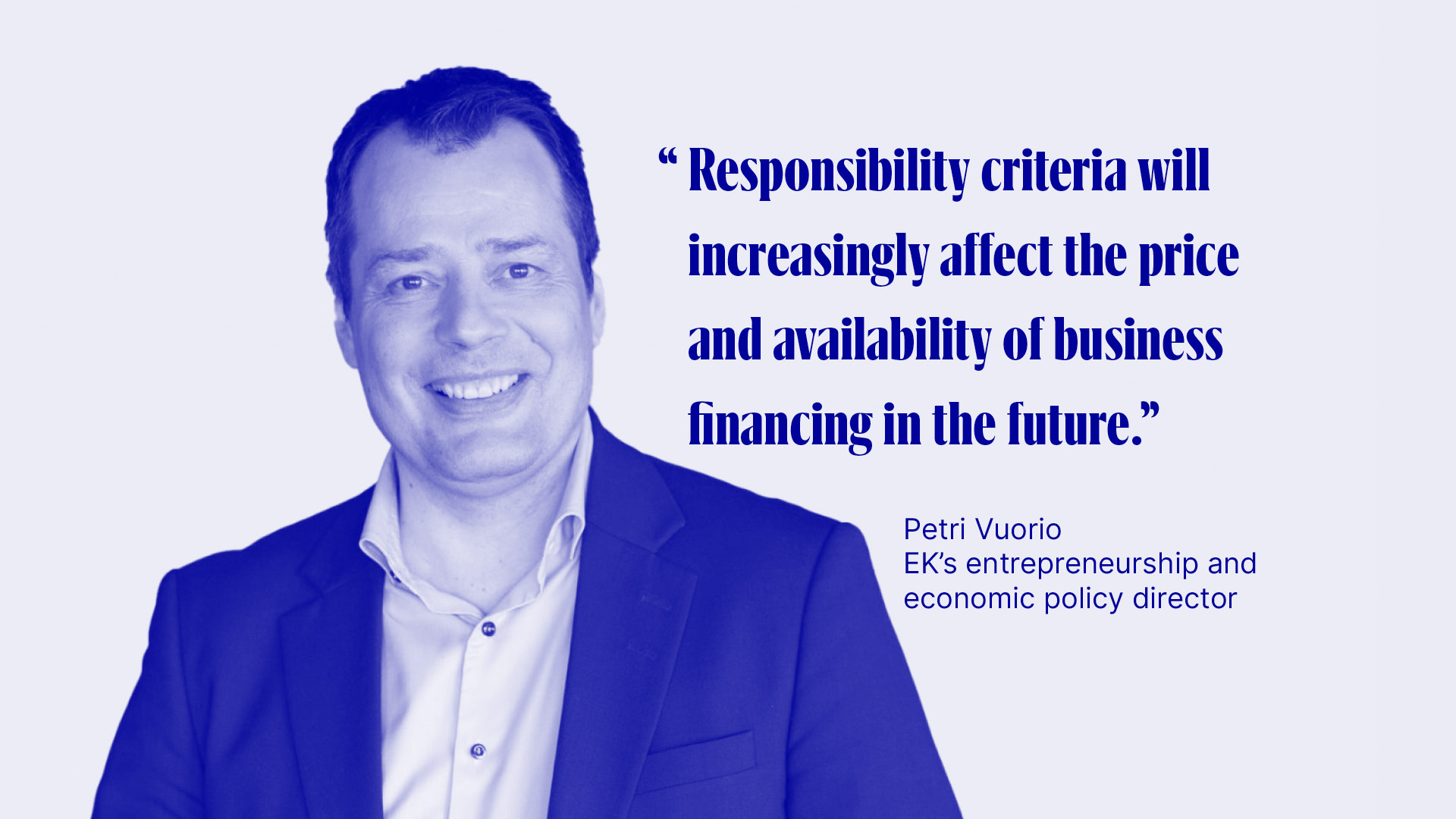Our blog guest
Petri Vuorio
Director of Entrepreneurship and Business Policy at EK
Read this article in Finnish >
In the midst of the global crises, the expectation for comprehensive corporate responsibility has not disappeared, but the pressure for concrete actions, changes and positive impacts has increased. Sustainability is increasingly a strategic choice for companies to ensure success. In addition, a number of legislative projects are in the pipeline at EU level to drive forward sustainability requirements.
Research shows that Finnish companies are pioneers in sustainability – but actual success stories, with sustainability at the heart of their growth and success, are still relatively rare.
If you’re still wondering whether it’s worth investing in sustainability now, Petri Vuorio, Director of the Confederation of Finnish Industries, sums up the answer in our guest blog.
1. Finance
“Sustainability regulation and reporting requirements in both the financial and corporate sectors will become more stringent. Sustainability criteria will therefore have an increasing impact on the price and availability of corporate finance in the future.”
2. Supply chains
“More than 70% of Finnish exports are intermediate goods. Through domestic and international supply chains, the sustainability requirements imposed on even large companies will be reflected on all actors, including SMEs. Self-regulation and differentiation from competitors are moving from self-regulation to mandatory regulation through a number of legislative projects in the pipeline.”
3. Skilled labour
“As the top employer brand, sustainability is a key success factor in companies’ competition to recruit the best people. A responsible approach increases an organisation’s ability to attract and retain the productive and happy employees it needs. Sustainability is therefore a way of providing solutions to one of the most important bottlenecks to SME growth: the shortage of skilled labour.”
4. Brand equity
“As purchasing behaviour changes, people expect brands to be responsible and want their choices to contribute to a sustainable future.”
5. Market value
“The sum of the above factors, together with the potential for companies to succeed in the future, have a significant impact on the market value of a company, both in terms of sales and purchases. The above points underline the point: sustainability is an essential part of a company’s success story.”
Interested in more on this topic? How to make sustainability a sustainable competitive advantage for your brand – check out our products.

